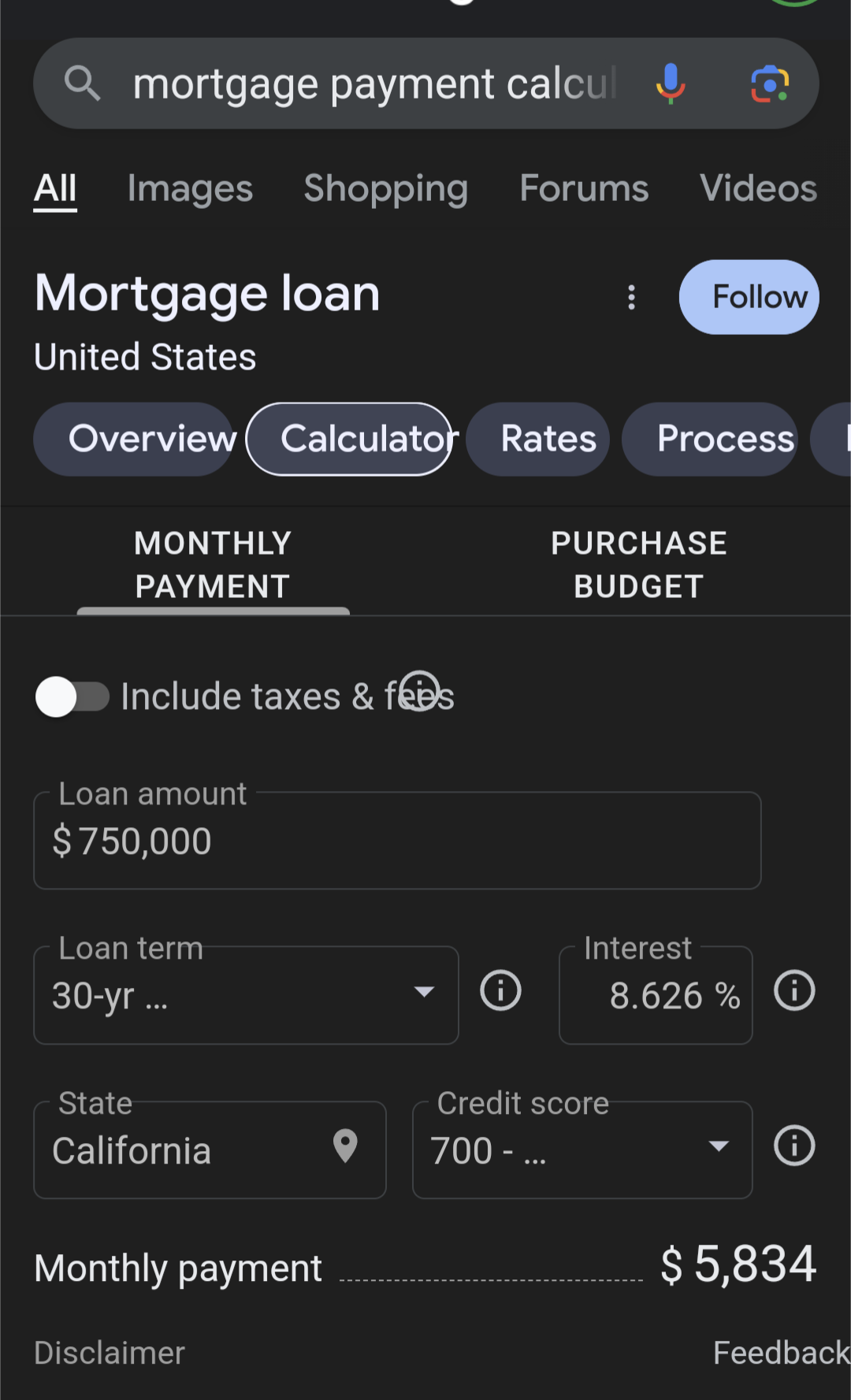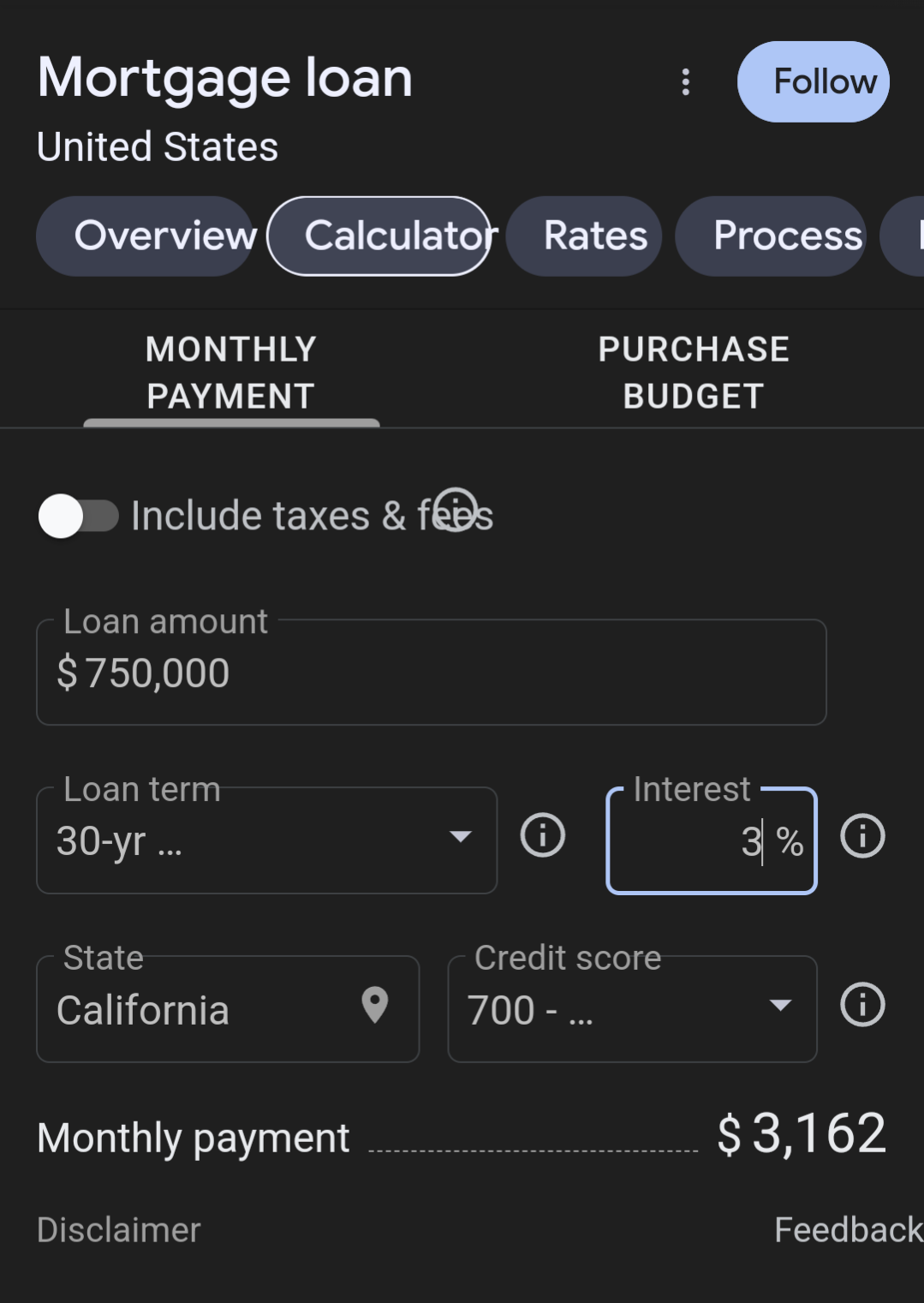The Nanos Pocketbook Index fell to 50 last week, while gen Z respondents scored their lowest rating in at least 16 years. Read more.
I don’t think it’s fair to lay current economic landscape squarely at Trudeau’s feet.
Everywhere is poorer, corporations have been taking an unfair share for a long time and it is only ramped up in recent years. The United States is in a similar spot
I don’t think it’s fair to lay current economic landscape squarely at Trudeau’s feet.
I agree. There is plenty of blame to go around. Trudeau, the other leaders, the MPs, and the very parties themselves going back to at least 1990 are to blame.
There is virtually nothing that can’t be traced back to changes in policy enacted by, supported by, and tacitly accepted by literally everyone involved.
Changes to EI that gutted the power of non-union employees.
Changes to business and labour policies such that “society owes me a business” and “nobody owes you a job” attitudes were fostered, then cemented.
Any subsidy or tax reduction or public funding of anything that generates private profit.
Complete dismantling of a world-leading social housing program.
Gutting civil service in favour of consultants and industry association advisors.
Allowing already weak anti-monopoly legislation to gather dust in a drawer.
The focus on the financial health of the stock market instead of the financial health and stability of the general public.
The idea that industry can self-regulate potentially damaging behaviours. It’s never happened. It never will.
And my favourite, running the country like a business. Every employer runs their business as a dictator. Who the hell thinks that’s the right model for running a country?
As someone who looks at a lot of data and charts I don’t remember seeing any charts where Canada isn’t gotten noticeably worse compared other G7 countries.
I actually find it hard to believe people don’t think Trudeau’s leadership has been a very significant problem for this country. It’s just laughable that anyone thinks Pierre is better.
It’s definitely true that we’re lagging behind other G7 nations and I don’t think our leadership is blameless just definitely not the only blame.
I’m skeptical we’d be in a better spot under different leadership but with climate change, war and late stage capitalism in full swing I won’t hold my breath.
Sorry for the depressing comment!
I’m probably voting for NDP whenever they decide to call a election. I don’t think Jagmeet is going to be a good PM but if he can deliver voting reform that’s a lot more than I’d expect from anyone else.
NDP’s insistence that PR be the only acceptable voting reform possible is a primary reason we didn’t get voting reform.
NDP could have sided with the LPC and gotten us STV or Ranked Choice, but they sided with the CPC and asked for an unnesswcary referendum and a dealers choice PR system that they knew the LPC wouldn’t be able to support,and wouldn’t pass the senate in any case.
That was really strange for me because ranked choice voting would almost guarantee the NDP a lot more votes and power than it currently has.
To be fair, the Liberals wouldn’t choose a voting system that would see them lose access to power, which PR would: there would never be another election where they could get 30ish% of the vote but win a majority, which suits them just fine: they’d rather change seats with the Conservatives every few years than be forced to compromise with other parties.
The electorate in this country is much more left-wing and progressive than the politicians it elects, and PR would codify that. The Calgarian and Laurentian elites wouldn’t ever let that happen, which means that, if the NDP and BQ ever manage to form a plurality, they need to ram it through immediately.
And the Senate can pound sand: next to the Governors General, they’re a useless rubber stamp anyway.
Given that the Liberals had majority at that point I think that instance is on them.
They didn’t have a majority on the ER committee. So should they have unilaterally ignored the majority report of the other parties and just ram through their own preference for STV? Or maybe abandon their grass roots party supporters and gone with PR, despite the fact STV was party policy, reaffirmed only a year or two before? How about the referendum the NDP supported by voting with the CPC in committee, should the LPC have ignored that and if ignore that, why not the whole thing? If they ran the referendum nothing would have gotten done before the next election anyway. This was honestly more complicated that I think a lot of people give it credit for, and the NDP Alliance with the CPC is no small part of that complication.
They didn’t have a majority on the ER committee. So should they have unilaterally ignored the majority report of the other parties and just ram through their own preference for STV?
They had majority in the House. They chose how the committee was constructed.
I’m really amazed how the people with 44 seats is suppose more responsible for something than the people that had 184 seats.
The initial proposed structure of the Special Committee was three voting members allocated based on each official party’s seats in the House (six Liberal members, three Conservative members, and one New Democratic member), with a member of the Bloc Québécois and Green Party leader Elizabeth May given additional non-voting seats.[6]
The structure of the Special Committee was criticized by the opposition party leaders, as the government would have possessed a majority of the committee seats and could unilaterally recommend alterations to the electoral system without the support of any other party. Interim Conservative leader Rona Ambrose, the Leader of the Official Opposition, denounced the plan as “stacking the deck”, while Nathan Cullen, the NDP critic for Democratic Institutions, urged the government to reconsider this plan as well. The Green Party and Bloc Québécois additionally objected to their lack of voting representation on the committee.[7]
On June 2, 2016, Monsef announced that the government would support a motion by Cullen to alter the structure of the committee to have seats allocated based on percentage of the nationwide popular vote in the 2015 election and give the Bloc Québécois and Greens one voting seat each on the committee.[8][9] The Liberal caucus on the committee would have in effect only four voting members, as the chair would not vote unless there was a tie.[10]
Further references.
2015 Election results: https://en.wikipedia.org/wiki/2015_Canadian_federal_election
Timeline: https://globalnews.ca/news/3102270/justin-trudeau-liberals-electoral-reform-changing-promises/
Canada is notably worse compared to other G7 nations in terms of cost of living - housing is unaffordable to those that don’t already have it.
I actually find it hard to believe people don’t think Trudeau’s leadership has been a very significant problem for this country. It’s just laughable that anyone thinks Pierre is better.
I keep having this conversation with people who hate Trudeau. I get them to list out their issues with him, and none are problems the Conservatives are looking to solve. But the anti-“woke” brainworm is just too strong. They will literally vote against their own interests to own the Libs. The Americanization of Canadian politics is already here.
Corporations don’t have a share. Corporations have shares. Shareholders own those shares.
That being said, the single biggest drain on most advanced countries lately has been real estate. The value of which has been increasing far more rapidly than corporate profits.
It’s land owners who’ve been taking too much for the last few decades, as was predicted would eventually happen in the late 1700s and early 1800s by early economists. It happened in Japan 30 years ago, and look where they are today. Tiny homes, overworked, declining population…
I think our housing markets biggest problem is twofold outdated zoning laws that only allow for single-family homes to be built and carcentric infrastructure that requires huge roads and parking spaces that require enormous amounts of public funds to maintain.
I think our housing Market’s biggest problem is that fucking rent is $2,000 a month… I don’t give a fuck about car Centric infrastructure or single family homes… I can’t pay $2,000 a month for rent. that’s the housing markets problem.
The reasons I listed I believe are a big reason that it is so expensive. You can’t find a solution without first correctly identifying the problem.
God I wish I could find just $2k a month rent. That’s what I’m being forced to give up. Everything I’m seeing is 50-100% more.
Yea but it’s the Finpo it’s a boot lickers rag
Snc Lavalin… Whatever happens with that?
I’m a bit of a loop here, I tried to look them up and I mostly got some corporate BS about them rebranding. When you have time are you able to enlighten me?
Looks like execs got some prison which is a pleasant surpise coming from US.
My understanding is that the scheme went straight to nepo baby prime minister who appears to got away unscathed here tho being elite really does make you above the law.
https://nationalpost.com/news/canada/former-snc-lavalin-executive-sentenced-bribery-case
Went to check sources but you have to register to read the whole article, do you happen to know the source or another article that has them?
It’s US federal reserve among other research papers which may not translate to CA 1 to 1. However I wonder if a similar trend in sentiment. I see this quite often around housing prices. Yes, there was a surge and interest went up, but housing is still within budget for the middle class. The sentiment among young people seems to be I’ll never own a home and I need a million dollars.
A mortgage payment has doubled in 3 years to buy the same house (assuming price was even the same which it often is significantly higher) What are you even talking about? This is not normal, and it’s fucked up that somebody who got a house 3 years ago got to pay half of what somebody who gets a house today. This is not capitalism. The market was already artificially high before covid, and then we let the richest people leverage themselves to the max on free money and buy up all the housing supply. The youngest people had the rug pulled on them the hardest. If you can’t see that, I don’t know what to tell you.
It hasn’t doubled, but the past 3 years have been a difficult change, I completely agree. The return to more normal rates, plus the temporary surge with COVID have priced some out of a home. But both these increases are back to normal and this hasn’t priced out most of the middle class. It’s more expensive, and we should try to make housing more affordable especially for those that don’t make enough to own, but hyperbole like yours is exactly what I’m referring to. It’s not double and gen z home ownership rates in the US at least are better than millennials.
Yes, it has.


Sure, if you use made up rates and exclude point buy downs.

Buying points involves paying more money up front to reduce interest rates. Given that someone struggling financially wouldn’t be able to do that I don’t think it’s fair to include them in conversations about the affordability of homes. It’s also not a great idea to buy points if you’re uncertain about whether you’re going to continue living there. It can take years for the savings on interest to recoup the up front cost of points, so you could easily lose money if something happens and you end up having to move or sell the home.
The “boots” theory of economic unfairness is pretty relevant here.
Edit: also the numbers the above commenter used are not far off, in the US average interest rates in 2021 went as low as 2.65%, and average interest rates in 2024 have been oscillating around 7%.






